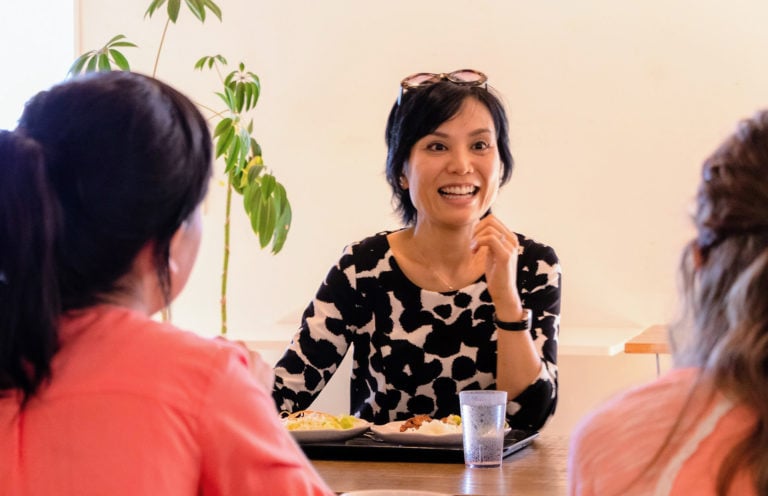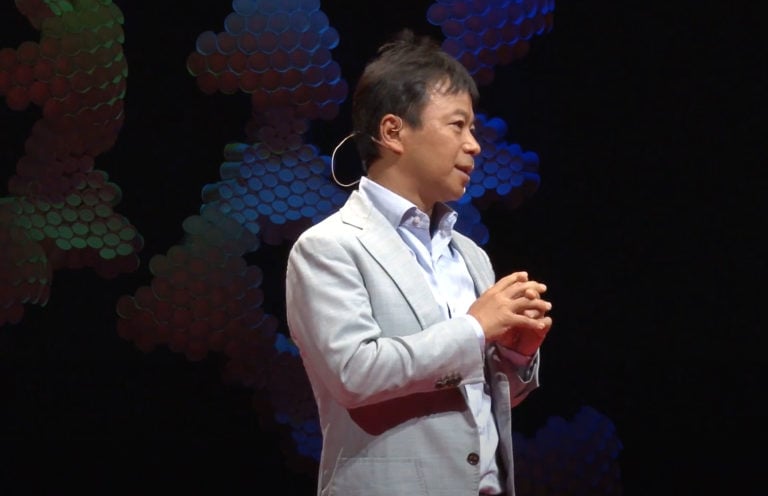 Written by Damien Pitter
Written by Damien Pitter
Mr. Pitter is a University Advisor at UWC ISAK Japan.
1.
As a university advisor, one of the questions I am most frequently asked by parents is, “What does my child have to do to get into a top university?” It’s a difficult question to answer, partly because there is no single answer, and partly because it’s the wrong question.
2.
As a university advisor, the questions I am most frequently asked by administrators and board members are, “How many Ivy League acceptances did we have this year?”, or “How many students got into their top choice university?”, or “Where did the top 5% matriculate?” These are easier questions to answer. But the answers do not mean what we want them to mean, because these too, are the wrong questions.
3.
A magic trick is composed of three parts: the Pledge, the Turn and the Prestige. In the Pledge, the magician shows you something ordinary—a rabbit in a box, or a deck of cards. In the Turn, the magician makes the ordinary thing do something extraordinary—the rabbit disappears, a volunteer from the audience is cut in half. If the trick ended there, it wouldn’t be magic, it would just be unsettling. The Prestige returns the extraordinary to ordinary, puts the bunny back in the box, returns the audience member unharmed to their seat. It is the Prestige that allows us to take pleasure in having been tricked.
4.
We have rankings and league tables, standardized tests, percentiles and grade distributions. We use words like “top” and “best” and “prestigious” and “elite” when we talk about universities. We have a great many ways of designating one the best of all. But what is that really worth? When you meet the love of your life, does it matter that there were x number of more attractive people in the room, or y number less? And how does one decide on the best? There are rankings, but who is doing the ranking, and based on what criteria? Unless you know specifically what you want to be best at, “best” is not useful as a universal designation. Many universities have moved away from this kind of language to describe themselves in terms of selectivity. It may be subjective to say that one is an elite university, but quite empirical to say that it is “highly selective.” But does the fact of a university being difficult to get into, mean that it provides a better education?
5.
“Prestige” is derived from the latin, “preastigium,” meaning illusion.
6.
There is no universal best. In order for this to be a useful question, we have to ask, best at what? What we need is not a universal scale by which to measure all universities, or all students for that matter, but a question of “best fit.” We need to match the specific needs of a program with the required abilities and preferences of the person who might perform them, in order to determine the best fit between study and student. When we advise students in the search for universities, we start by helping students to understand themselves—what they love, what they are good at and what is important to them, what their responsibilities are towards others, in order to search for post-secondary options that will best fit them individually.
7.
About two years ago, the Education Conservancy and Harvard Graduate School of Education’s Making Caring Common Project put together the ‘Turning the Tide’ report, which begins with the acknowledgement that by requiring students to be a wider range of things than just smart, the process of admitting students to university could help to make the world a better place. The report outlines factors beyond academic scores that might be considered in the admission process, such as commitment to family, work experience, authentic and sustained service to the community, and the development of empathy. Over 150 well-known universities have endorsed the report.
8.
It is our hope that when universities consider our students, they will do it in the same way they encourage students to look for universities in the “best fit” paradigm. For this reason, we do not rank students or provide percentile information or grade distributions. Nothing about a student with an IB score of 35 changes depending on how many students had a higher or lower score. That student will continue to be the same person, regardless. We evaluate our students against the standards of our curriculum, rather than comparing them to each other and encourage universities to do likewise.
9.
What other people think of us is none of our business. It’s true. We cannot control how we will be perceived by others, and our attempts to do so often turn our own actions and intentions from authenticity to calculation. If we make ourselves into who we think others want us to be, our lives become a performance, and the approval of others becomes our addiction. As they say in the hip-hop generation, ‘You do you, Boo.’ The rest is out of your hands.
10.
The product of education is not an employee. An employee has market value, a net worth to the company that employs it. But that value is entirely dependent on the context of employment and the person who is that employee might have entirely different value in another context. Education does not produce employees, it produces people. The value of an education changes with the context you apply it to, and is constantly changing over time. The value of an education is therefore immeasurable. We cannot think of education as a business, with value in and value out. Education is more an act of faith than a commercial exchange of value.
11.
You do not go to university to get career, or even a job. There are institutions where you can learn a trade or practical job-related skills, but an undergraduate education is not job training. It is unlikely that the careers of our students will involve a hierarchical climb through the ranks of a single company or even field, but rather, be a collection of different roles performed in different contexts. Many of the jobs our students will have do not yet exist. The goal of a university education is to nourish, support and challenge students to develop into the most capable, most engaged, most fulfilled version of themselves. A person who does that will be able to do many jobs, including those that do not yet exist.
12.
An analysis of the question, “What does my child have to do to get into a top university?”: a) “have to do” implies that there is one way to get accepted, a checklist of must-have experiences that add up to a secret password. It’s possible that getting into university is less about what you do and more about who you are, in which case, it might be better to ask, “who should my child become in order to get accepted into a top university?” b) But if we are doing becoming something “in order to be accepted” then aren’t we making what other people think of us our business? Is the whole point of high school to earn the approval of ten people sitting around a table at a university? c) And then there’s that “top” qualifier, that prestige factor that doesn’t universally mean anything, and which might keep us so busy looking for the “best” that we miss the “best fit.”
13.
The better question goes something like this: “What can my child do in order to become the most authentic, engaged and fulfilled version of themselves that they can possibly be by the time they apply to university?” This would be a great question even if universities didn’t exist, but it also happens to be what universities are looking for. Students should do the best academic work they are capable of, and beyond that, there is no checklist of required experiences. It is not necessarily better to play a musical instrument or play on a sports team. It depends entirely on who they are and how much those things genuinely matter to them. It does not help to become a virtuoso of the violin if they don’t like to practice or play for the sheer enjoyment of music. On the other hand, someone who loves to write original songs might be a really interesting applicant, even if their songs are consistently terrible, because you can learn to write a better song, but you can’t be taught to love something or be forced to want to do it.
14.
We ask questions about the number of Ivy’s the top 5% got into because we are looking for some measure of the success of our high school education. But these are false indicators. If we have been successful as educators and as advisors, we can only ask the following: Does each student have a post-secondary plan that they are excited about, that they can afford, that aligns with their interests and aptitudes, and that will challenge them enough to keep growing?
15.
Getting into university shouldn’t be a magic trick. It isn’t about conjuring the appearance of someone smarter or more interesting in order to get into the “best” university. It’s about being interesting and finding the universities who are looking for the kind of interesting that you are. If you can do that, the Turn and the Prestige are unnecessary. If the best fit is the goal, then the Pledge is what matters.




